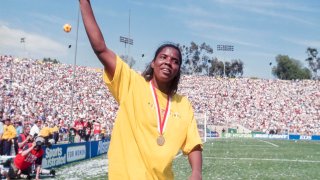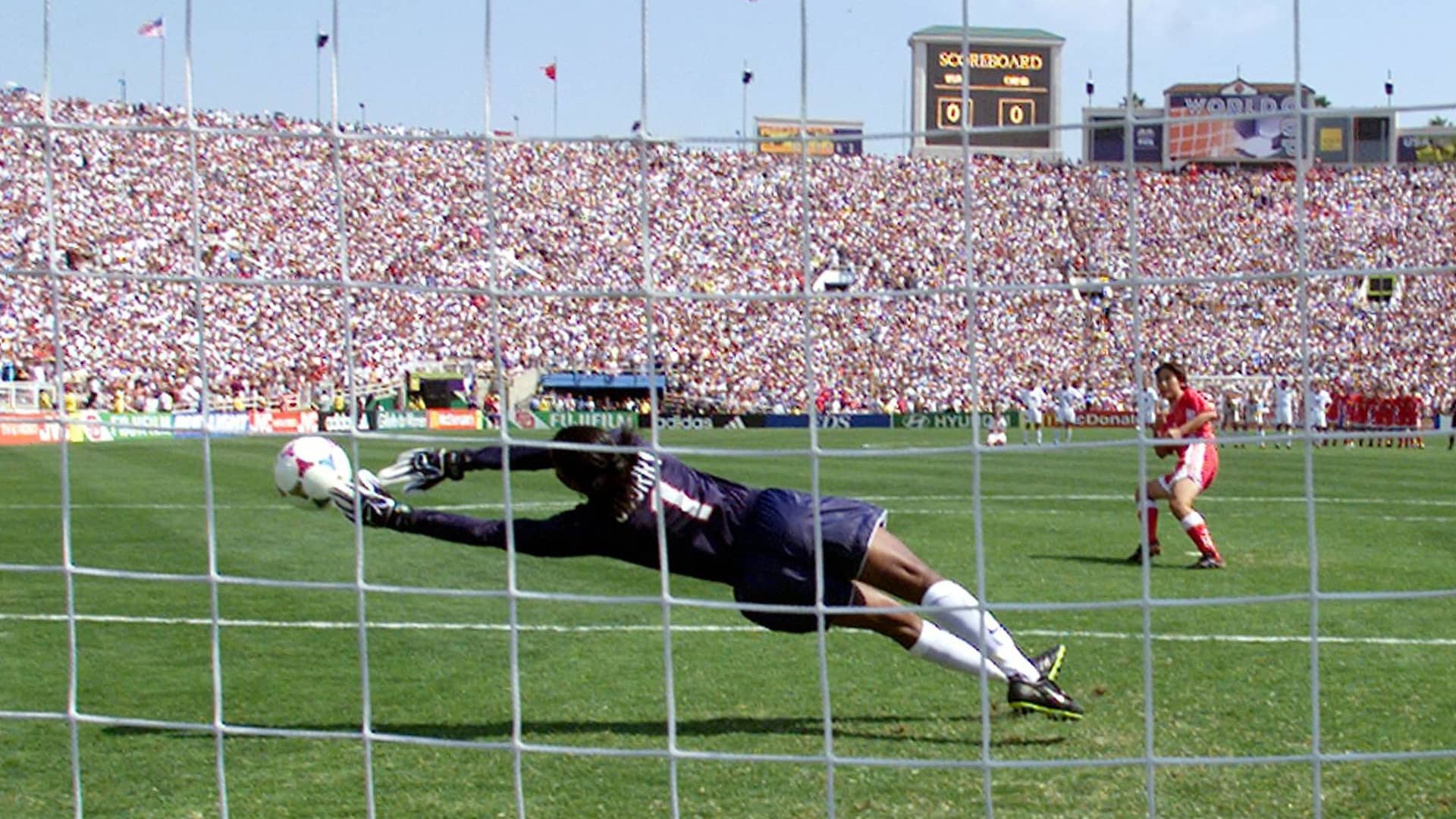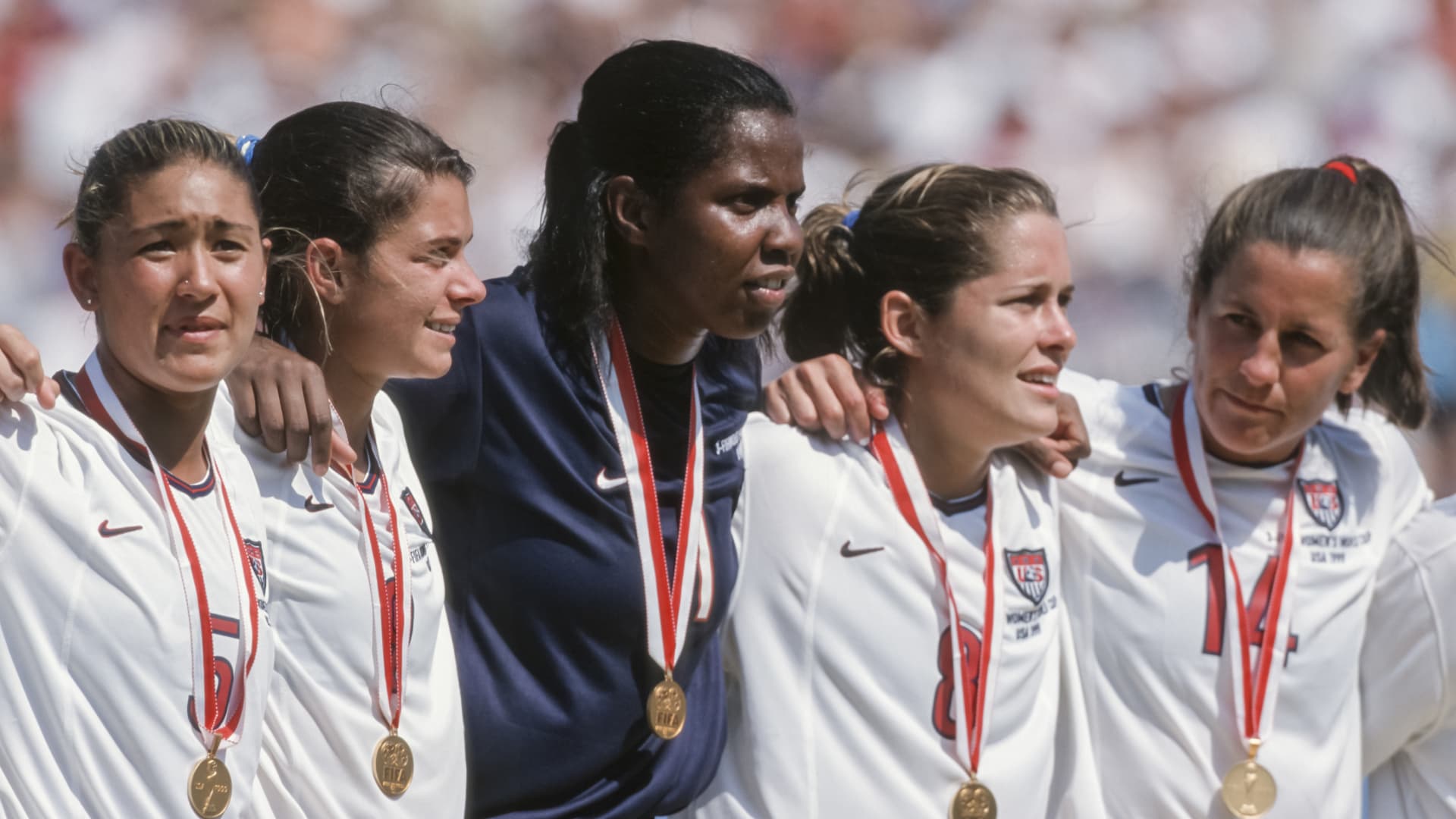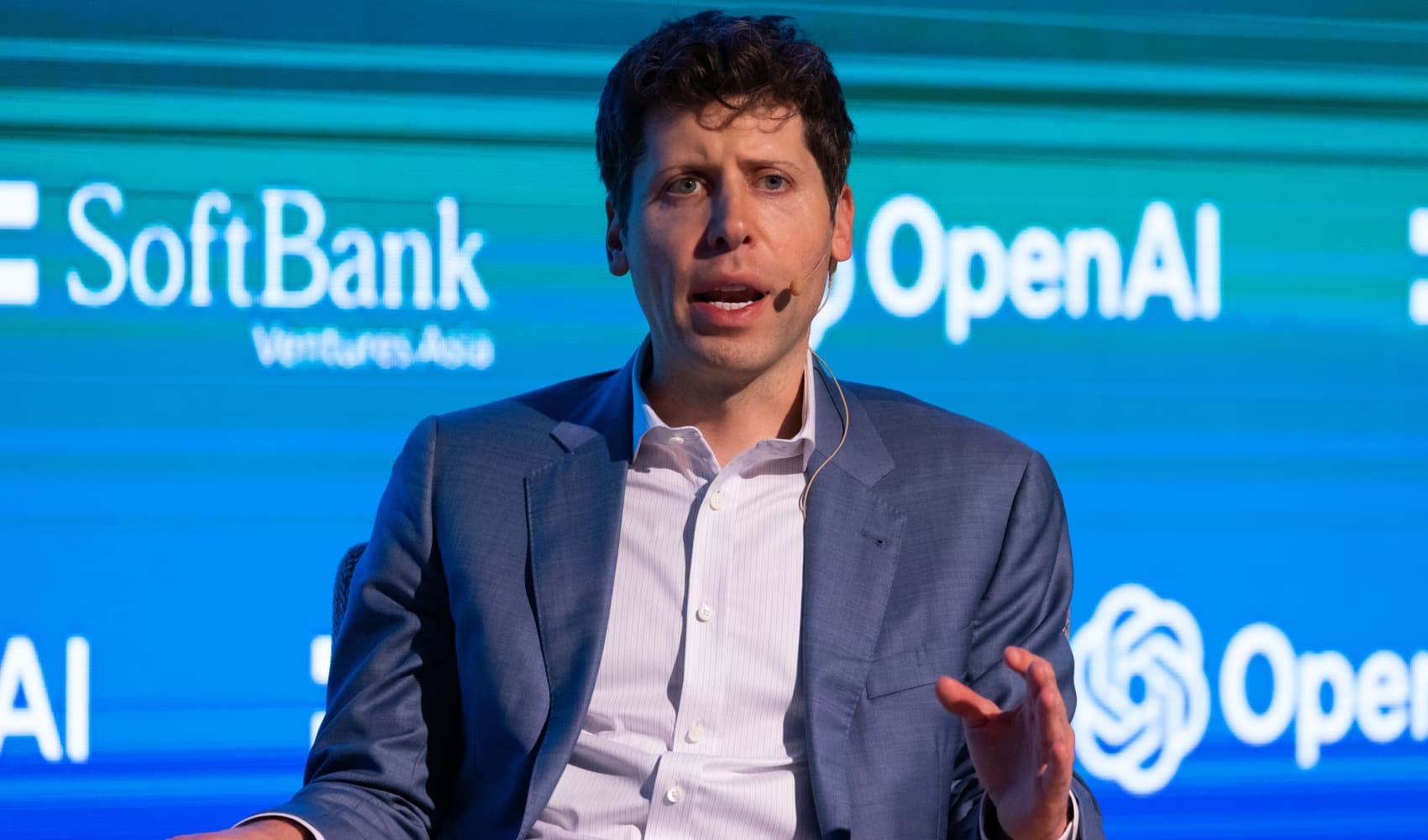
Briana Scurry, former U.S. Women's National Soccer Team goalkeeper, has impeccable timing.
In 1994, her physical timing earned her the role of starting goalkeeper for the USWNT, for which she set a record 173 international appearances in the position and helped secure two Olympic gold medals.
Watch NBC6 free wherever you are
>Scurry's most famous display of physical timing may have been during the 1999 FIFA Women's World Cup final against China in Los Angeles, when she blocked Liu Ying's overtime penalty kick, allowing Brandi Chastain to finalize the U.S.'s win and take home the team's second championship. Penalty kicks are taken just 36 feet away from the goal and, traveling at a typical speed of 70 miles per hour, can give goalkeepers less than half a second to react.
Moments such as these earned Scurry a history-making deal with Nike, and solidified her spot not only in the U.S. Soccer Hall of Fame, but also the Smithsonian National Museum of African American History and Culture.
Get local news you need to know to start your day with NBC 6's News Headlines newsletter.
>As she points out, her timing has also often put her in the right place at the right time to push for change — whether that be growing up with the benefits of Title IX or joining the USWNT during a period of increased visibility.
"On the Women's National Team, as soon as you put that jersey on, you are a crusader for pay equity. That's just how it goes, you take up that mantle as something that's as important as the quality of the football you're playing on the pitch. And when you put your cleats away, you don't put that mantle away," Scurry says. "It's something you take up when you come into the world if you're a woman because it just seems to be that everywhere is inequitable. My flavor just happens to be women's soccer and someone else's is the corporate C-suite."
CNBC Make It spoke with Scurry about the USWNT's fight for equal pay and the time that progress takes.
"We're still fighting for pay equality. I'm 50 years old. When I'm 80, I'm assuming that we still will be fighting for it," she says. "These are journeys that take a very long time."

School, soccer and Title IX
Money Report
Growing up in Minnesota, Scurry played basketball and soccer but was inspired to pursue sport seriously while watching the 1980 Olympics when the United States Men's Hockey Team beat the USSR during the "Miracle on Ice."
"I told my mom and dad, 'I want to be an Olympian!'" she remembers. "I ended up being the exact thing that I saw and that I wanted, but in terms of making a living at it, that's not how I looked at it. I just wanted to be an Olympian, I had no idea what that meant."
Scurry says she never imagined it would be possible to be a professional women's soccer player because she had never seen it.
"It wasn't something I thought I could make a living at," she says. "Back then, it was amateur status, so no money. And then it changed in 1992, that was the first Olympics where they had professionals playing… Now young girls see Alex Morgan or Megan Rapinoe doing amazing things and they know exactly which sport they want to play and what it takes. We didn't have that. We didn't have role models in that way back then. My role models were basketball players."
She also looked up to figures like Billie Jean King, who would later mentor the USWNT as they fought for pay equity. And though she continued to play basketball, Scurry was recruited to play soccer for the University of Massachusetts, Amherst.
"Soccer and goalkeeping just happened to be the thing I was better at and so that was my vehicle to get into college, and then subsequently to get on the national team," says Scurry. "I didn't even know there was a real [national team] until my sophomore year in college. It was sight unseen basically and this beautiful, serendipitous crossing between myself and the national team."
This path to collegiate (and later international) soccer was made possible by Title IX, which requires all educational institutions that receive federal funds to offer equal opportunity in sports to men and women. It was passed in 1972 — just a year after Scurry was born.
"My timing was perfect in that regard. I am, and will always be, indebted to this law that made my life end up the way it did. It was truly instrumental. It was such a watershed moment," says Scurry. "I don't know if I would have gone to college without that scholarship."
Scurry is currently writing a book, set to release next year, to commemorate the 50th anniversary of Title IX.
The USWNT
In September, the USSF announced it would offer the respective players' unions for the men's and women's national teams the same contract proposal — players on the women's team responded with cautious optimism and significant skepticism. Scurry recalls how strikingly different the men's and women's teams were treated by the USSF when she joined the USWNT in 1993.
"The men flew business class, especially international, and the women did not. The women often got middle seats on flights and when the men couldn't get business class, they got aisle seats," she says. "And the reason given was: men are bigger, they need more space."
A similar line of thinking was used to explain why the women were paid at significantly lower per-diem rates.
"The women got $5 a day, or per diem, and the men got $25. At the international level, I think we got $10 and they got $35. And the excuse was: men eat more," she says. "I'm a logical thinker. I'm a Virgo. First of all, this money isn't for food necessarily, because we were provided meals. But most importantly, they were making excuses because they didn't want us to be equal."
CNBC Make It reached out to the USSF for comment but did not immediately receive a response.
In 1995, nine members of the national team, including Scurry, chose to boycott the Olympic training camp to advocate for equitable conditions for the upcoming 1996 Atlanta Olympics. At the time, the women would only receive an Olympic bonus if they took gold, but the men would get bonuses for gold, silver or bronze.
The USSF said the organization would not "award mediocracy" and locked out the players who contested the conditions.
"I came onto the team in November '93, so I had played in a World Cup, and I had started in the World Cup, I had become a core player quickly, but I wasn't on the team for long. And I was completely and utterly in for making the stand because even though I was so young still, I was in my mid-20s, I understood the gravity of what we were trying to do," she says. "But I also understood what I was risking."
This risk made the move all the more frightening, and the solidarity among her fellow striking teammates, even more valuable — a feeling that Scurry says can likely be appreciated by many workers who are organizing.
"I was on the precipice of my dream of being an Olympian becoming reality. And then this came, and we were deciding to potentially lose that dream," says Scurry. "It was a lot to risk because it was the first women's Olympic soccer gold medal available. We were hosting the Olympic games that year in the United States, we were one of the favorites to win, we were trying to grow our game and it was all very fragile at the time."
Once again, timing was on Scurry's side. "We had leverage because we had won a world championship in '91, and we knew we could win again, and because of the timing of it," she says. "We got some more resources and some more money from the Federation."

Making money
Scurry was able to support herself playing professional soccer without taking on side jobs — which many current and former professional women's soccer players must do to make ends meet.
"I consider myself incredibly lucky because when I came on the national team, that is when Nike came into the picture. Nike had never been in soccer before," she says. "I was one of the first-ever Nike soccer athletes, there were five of us, and the income from that deal made a huge difference."
She says her Nike contract paid $40,000 a year and remembers receiving her first bi-annual check of $20,000 which went "straight in the bank."
"It was a lot of money for me. I couldn't believe it. I was making money playing soccer," recalls Scurry. "I came at the exact right time, so I never needed to have a supplemented income."
She continues, "Because of Nike, and our push with the Federation, and then the '96 Olympic games coming shortly after it, I was able to just play soccer for a living, which was great," she says. "But my timing was impeccable because the years before I joined the national team were very, very dry. And most players had to either be coaching on the side, or go back to school, and continue their education or coach on their college teams, or do clinics and that kind of thing and have something on the side, but I came in at a time where I was really lucky."
Despite her gratitude, Scurry stresses that without the massive paydays that are customary for many of the world's top male athletes, women such as herself often have to plan to have second professional careers after sport.
"There is definitely a need for female professional athletes to think about what's next because the window of gameplay on the pitch or the court or the field is small compared to the rest of your life," she says. "And the money won't last forever."
In April 2010, Scurry suffered a third and career-ending concussion, followed by three years of consistent headaches. Since then, she has spoken out about the dangers of head injury in soccer including in front of Congress.
Though her sudden retirement was "difficult," Scurry stresses that she wouldn't have timed things, or her career, differently.
"I really struggled, but had that not happened, however, I would not have met my wife."
Scurry met her wife, Chryssa Zizos, founder and CEO of Live Wire Strategic Communications while pushing for her insurance company to cover treatments for her head injury.
"My career, at the time it came with what we were able to do and how it turned out, impacted millions of young girls' opportunities in ways that would not have happened at all, or not until much later. Because what happens is, these things ripple," she says, mentioning how current soccer stars and equal pay advocates like Alex Morgan and Christen Press were in the stands during her big save and the U.S.'s big win in 1999.
"Just like when I was eight watching the [Miracle on Ice], watching something like that changes the trajectory of people's lives."
Don't miss:






